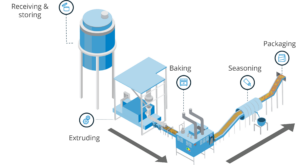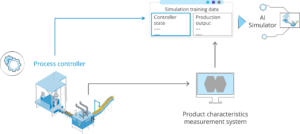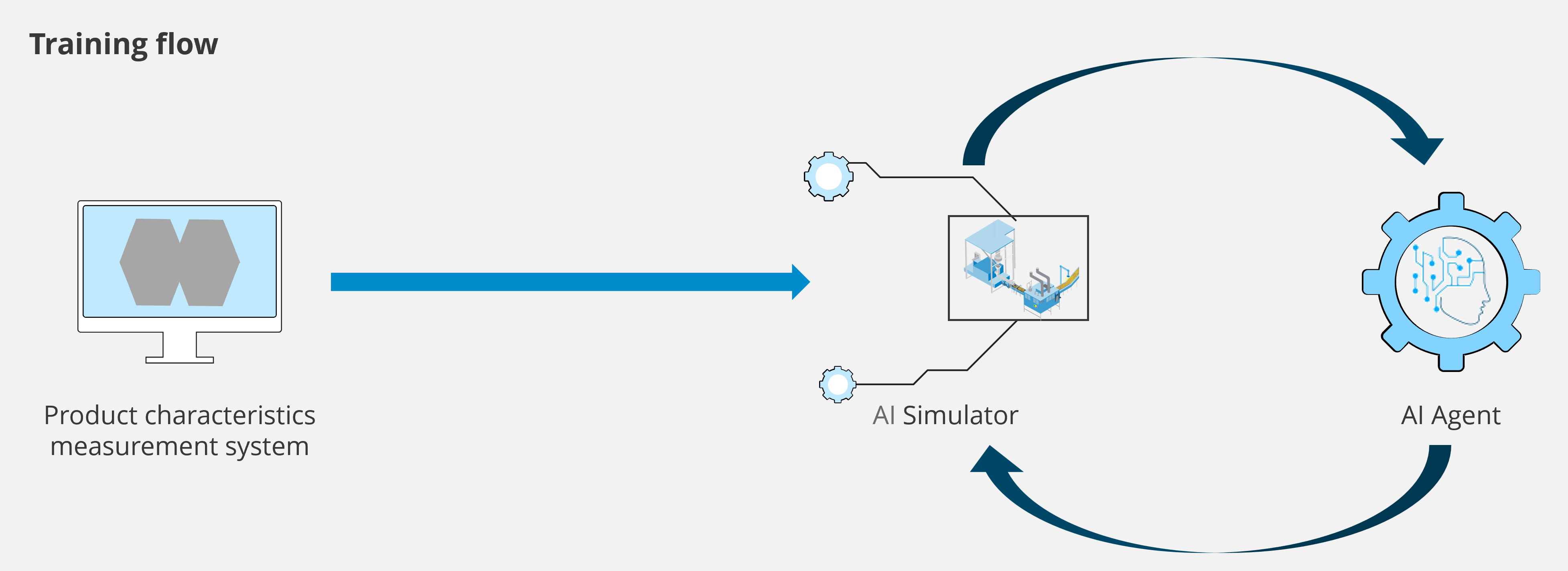Summary
Manufacture the perfect Cheetos
PepsiCo is a leading food and beverage manufacturer, and Cheetos are one of their most famous snacks. But how can PepsiCo continue to ensure they manufacture the perfect Cheetos every time?
Fractal worked with the Microsoft AI engineering team and the Cheetos manufacturing experts to build, train, and deploy an Autonomous AI agent leveraging the Azure Machine Learning platform.
This solution helps PepsiCo ensure the perfect Cheetos snack comes out each time.
Challenge
Optimize production yield
Optimizing production yield while ensuring quality is always a complex challenge. It is no different when it comes to manufacturing an irresistible snack like the Cheetos.

From ingredient characteristics to equipment behavior, it takes significant effort for operators and automated control systems alike to ensure consistent quality.
Changes in raw materials and plant environment can affect the process.
Although they are the same make and model, extruders across manufacturing lines will also have minor differences within their manufacturer’s tolerance range.
Finally, like any mechanical equipment, each extruder is different and extruder behavior can change over time. To help with these aspects, PepsiCo was looking for a solution that would both ensure consistent quality and minimize waste.
Solution
Developing an AI simulator
To optimize the production yield, Fractal worked closely with PepsiCo’s manufacturing team, from process experts to operators, and the Microsoft AI engineering team to design, train, and deploy a Production Yield Optimization autonomous AI agent.
This agent helps operators optimize the yield of the Cheetos extrusion process.

The first step to training the AI agent using the trial-and-error approach of Deep Reinforcement Learning (DRL) was to develop an accurate process simulator.
Because of the process complexity, Fractal’s AI experts developed an AI simulator using a Deep Neural Network architecture.
This custom-built process simulator was itself trained using real-life process data recorded during regular Cheetos production runs.
Using this simulator and PepsiCo’s process experts and operators, the DRL’s so-called “reward function” was defined using the concepts of Machine Teaching and after a series of tests to optimize the solution’s appropriate components from process inputs and outputs to reward function parameters.


Results
Improved system performance
Once deployed, the AI agent makes real-time adjustments to the extruder which helps maintain the product within specifications consistently.

As the output quality is now measured continuously using a product attribute measurement system developed by PepsiCo’s engineers, it now enables quality assurance without interrupting or even disturbing production.
Altogether, this solution improved the overall system performance by optimizing it for both efficiency and quality.





